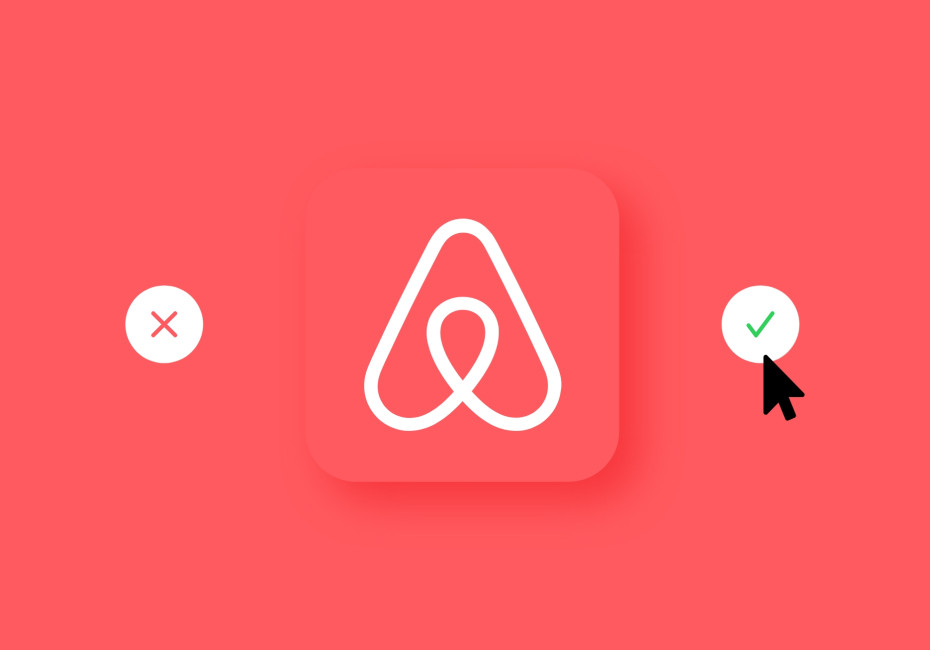Related services
During a season when many of us have had the privilege of planning some time away, we've dedicated a moment to reflect on the pleasure or frustration that often accompanies the search and booking process.
Think back to when you last searched for holiday inspiration or scrolled through endless pages of holiday cottages or all-inclusive resorts… Did you find it to be a tranquil and enjoyable experience? Or did it feel more like a chore?!
In this article we’ll be diving into the anatomy of what makes a truly great travel website and what we can learn from the industry giants.
In the ever-evolving world of online travel booking, a user-friendly and visually captivating website can make all the difference. For us, Airbnb stands out as an exceptional example of user experience (UX) design and has revolutionised the way that many of us book our holidays. With an emphasis on home sharing, authentic experiences and host-guest interaction, their position in the holiday market certainly makes them stand out from the crowd.
Airbnb's UX design also serves as a testament to the importance of striking the right balance between aesthetics and functionality. In a world where competition is fierce, a website's ability to cater to the unique needs of its users can make or break its success.
So what makes Airbnb’s experience so successful?
Enhanced Mobile Experiences
Mobile responsiveness and optimisation are a top priority for any holiday booking website so sites like Airbnb have invested in mobile-first designs and mobile app experiences that provide a smoother experience for smaller screen sizes.
Clean and Intuitive Layout
Airbnb's website and app feature a clean and straightforward layout, making it easy for users to navigate. The interface prioritises essential information, ensuring a clutter-free experience.
Segmented Search Filters
In addition to choosing a location, a budget and a type of property, a comprehensive set of filters that enable users to narrow down their search results is a must-have feature for truly personalising the user search experience whilst reducing the time spent scrolling through irrelevant options.
Airbnb’s advanced search filters allow users to specify their travel preferences. For instance, users interested in backpacking may want to filter by budget accommodations, while those seeking glamping experiences may prefer filters for luxury tented camps or unique outdoor stays. This segmentation helps users find precisely what they're looking for.
Image carousels within search results
To ability to cycle through a handful of images without the need to open up a property listing in a new tab seems like the simplest feature and one we take for granted but this simple gesture alone makes browsing through potentially hundreds of properties a breeze.
Verified reviews and ratings
One of the cornerstones of Airbnb's success is its reliance on user-generated content. Guests who have stayed at a property can leave reviews and ratings, providing valuable insights for future travellers. Airbnb's platform takes this a step further by verifying reviews, enhancing trust and transparency. This feature instills confidence in users and helps them choose accommodations that meet their expectations.
Host Profiles
Host profiles include photos, descriptions, and verified information about hosts. This transparency helps guests feel more comfortable when booking accommodations.
A focus on experiences
Airbnb offers a platform for booking additional experiences as part of your trip. This includes immersive cultural experiences, cooking classes, adventure sports and guided tours that allow travellers to engage more deeply with their destinations.
Integrated Communication
Airbnb offers an integrated messaging system, allowing hosts and guests to communicate directly through the platform. This feature enhances security and convenience for both parties.
What strategies can travel websites employ to cater for evolving travel preferences?
Content Curation
Feature articles, photos, and videos that highlight backpacking adventures, luxury destinations, experiential travel stories and eco-conscious experiences can inspire travellers and provide valuable information.
User-Generated Content
Encouraging users to share their experiences through reviews, photos and travel journals. User-generated content can be a powerful tool in showcasing the appeal of modern travel approaches. It also helps build trust among potential travellers.
Green Certification and Eco Labels
Many travellers today prioritise sustainability, so providing clear information about environmentally responsible options could be very persuasive.
Community and Forums
Create a community where travellers can connect, share tips and seek advice. Forums and discussion boards can be valuable resources for those looking for like-minded travellers and information.
Educational Resources
Provide educational resources on responsible travel practices and eco-conscious choices. This can include tips on reducing one's environmental footprint, supporting local communities and practicing cultural sensitivity during experiential travel.
Increased Use of Short-Term Rentals
Platforms like Airbnb have seen increased demand for short-term rentals, as travellers seek unique and private accommodations for holidays in their home country post-pandemic.
What does the future hold for travel websites?
Immersive Experiences
Travel websites will increasingly leverage augmented reality (AR) and virtual reality (VR) technologies to provide immersive experiences. Users can explore destinations, hotels, and attractions in a more interactive and engaging manner before making bookings.
Hyper Personalisation
Personalisation will become even more sophisticated. Travel websites will use AI and machine learning to tailor recommendations based on individual preferences, travel history, and real-time data. This includes customised travel itineraries, accommodation and activity suggestions and content like blogs, videos and travel guides that cater to each user's unique interests.
AI-Powered Chatbots
Chatbots will become more intelligent and capable of handling complex travel-related queries. They'll provide real-time assistance, answer questions, and even assist with booking changes and cancellations.
In summary
Website design in the travel sector is all about enhancing the user experience through personalisation and emerging technologies. The goal is to make the travel planning and booking process as effortless and enjoyable as possible while catering to the diverse needs and preferences of modern travellers.
If you'd like help optimising your own website get in touch!
For more news follow us @rootstudiouk
Similar posts

In a world crammed with endless scrolling, pop-ups, flashing offers and ‘read more’ rabbit holes, the real competition isn’t just other businesses - it’s cognitive overload.

Most websites don’t have a traffic problem - they have a conversion problem. Conversion Rate Optimisation (CRO) is simply about spotting issues and opportunities and gently guiding more of your visitors to take action.

